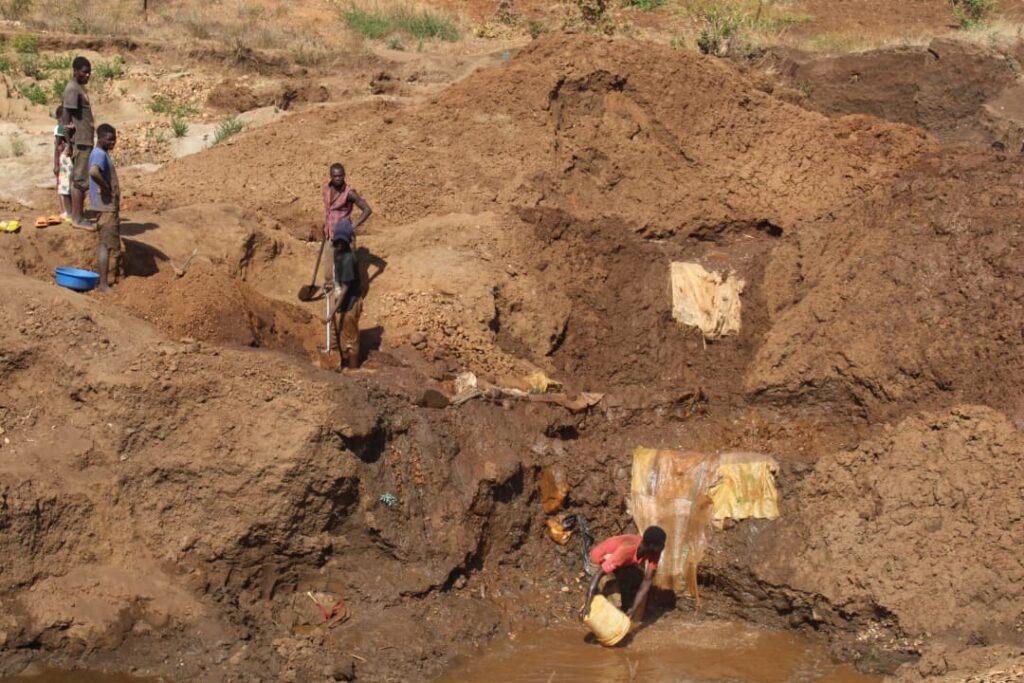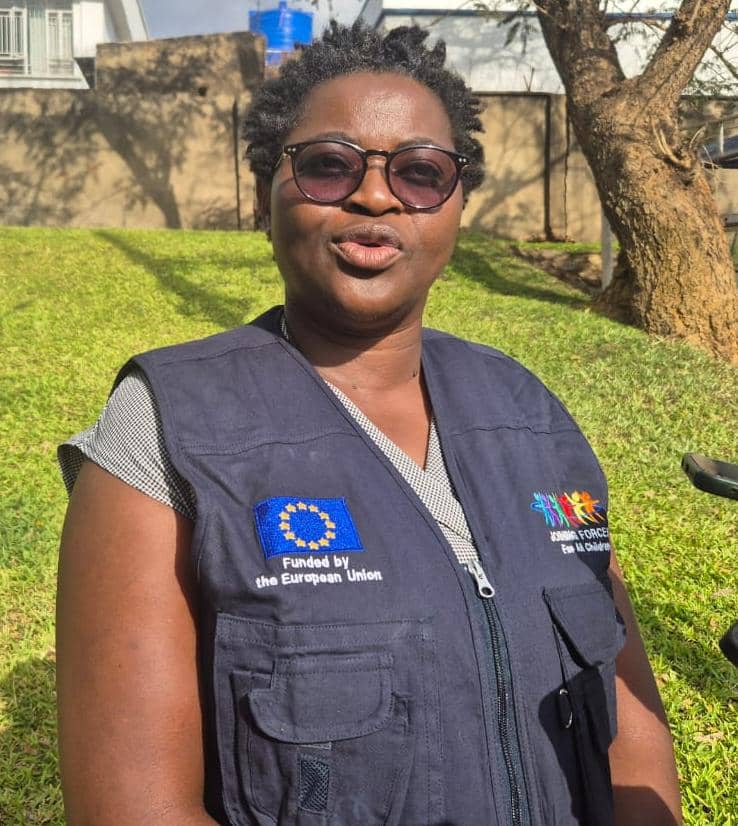
By Johans Mumba
Vitu, not his real name, from Traditional Authority Kalumo in Ntchisi District, aspires to be a Child Protection Officer.
This is the boy who, a year ago, was trapped in child labour where he was herding goats.
“My parents left me when I was only six years old, and I have been raised by my single grandmother who is 68 years old. When I was around 11, I was trapped in child labour where I was herding goats just to raise money for us to eat,” says Vitu.
Through the project, Vitu, who is now 15 years old, was sent back to school and is in Form 2 at a Community Day Secondary School in Ntchisi District.
Vitu’s grandmother, whom we shall refer to as Gogo Vitera, expressed gratitude for the project, saying Vitu’s future has been restored.
“After Vitu was saved from child labour, a new chapter of life was set for him. And daily I encourage him to work extra hard in class,” says Gogo Vitera.
In the same district of Ntchisi, another young boy aged 12 was also a victim of child labour. We shall call him Tioneni.
He was born into a family of five and raised by a single mother because his father left them many years ago.
“I dropped out of school and started herding goats because my mother was unable to provide necessities like school uniforms, textbooks, and other materials. My dream of becoming a teacher was in tatters, but I am glad that I am back in school,” narrates Tioneni.
His mother, whom we shall call Mwaonanji, has commended the project and called for its continuation, saying it will help rescue many young boys and girls who are victims of child labour but are yet to be reached.
“As I acknowledge the positive change the project has ushered into my family, I would like to appeal to those behind the project to consider extending it because it is a reliable tool to safeguard the rights of children,” says Mwaonanji.
Vitu and Tioneni are among the 12 children from Traditional Authority Kalumo who were rescued from the vice, while in Traditional Authority Chimutu in Lilongwe, a total of 139 children were withdrawn from child labour, all under the JOFA Project.
Senior Child Protection Officer in Traditional Authority Kalumo in Ntchisi District, Kenneth Malikebu, says the project supported government with resources to train community-based committees that convey important messages to community members.
“Usually, government has limited resources to address all the critical issues like child labour. Twelve young boys and girls in my catchment area have been saved from child labour since last year, and some survivors have been trained in vocational skills to venture into small-scale businesses,” says Malikebu.
Secretary for Chimutu Score Card in Lilongwe, Timothy Sylvester, says previously people were not aware of their rights, which perpetuated child labour and resulted in an increased number of young girls and boys dropping out of school.
Sylvester says out of the 44 Group Village Heads that constitute Traditional Authority Chimutu, the group has managed to send back to school at least 139 children from five Group Village Heads that have been reached so far.
“Children here in Chief Chimutu were highly targeted because they were considered cheap labourers. Children were assigned to look after livestock, sell merchandise, engage in illegal mining activities, and were forced to drop out of school.
“However, with the coming in of the JOFA Project, children are going back to school and we are able to support those whose families cannot afford school uniforms and other basic needs,” says Sylvester
He appeals for more help from well-wishers and a possible extension of this project, which he describes as a “savior.”
There are also multiple strategic places in the same area where illegal gold mining activities are carried out by community members including Lundu, Chipawo, and Kadzuwa.
Senior Group Fulatira from Chimutu in Lilongwe says the community enacted by-laws prohibiting children from being used in these illegal mining sites.
He says, “Initially, children were actively used in mining activities, but courtesy of the JOFA Project, any individual found deploying children in these places faces the set by-laws.”
The Malawi government has consistently decried forms of child labour, which currently stands at 38 percent, according to the 2015 Survey on Child Labour in Malawi.

Plan International Malawi and Save the Children Malawi are implementing a project called Join Forces for Africa (JOFA) in two districts: Lilongwe and Ntchisi. The project was rolled out in 2023 and is expiring on 30 December 2025.
JOFA Project Manager, Janet Nkhoma Chagoma, says the project has strengthened existing structures to fight child labour in Malawi through capacity building and other initiatives.
“The project works to protect children from child labour and its associated risks, while addressing the root socio-economic drivers that keep children trapped in harmful work. It promotes child rights governance, community engagement, and policy advocacy, ensuring children are safe, in school, and able to realise their full potential,” says Chagoma.

According to the International Labour Organization (ILO), child labour has a devastating impact on a nation as it perpetuates intergenerational poverty.
It is therefore crucial to approach the issue holistically, mainly by investing in education, strengthening child protection systems, and providing social protection for vulnerable families.
Stakeholders, led by government, should explore mechanisms to sustain the project’s impact in order to protect the rights of children.

Timveni Child and Youth Media Organisation uses radio and television to give a voice to Malawi's young people, especially girls, on children's rights. The organization exists to help young people in Malalwi make a difference in their own lives, create awareness about children’s rights, and build the capacity of children and young people.
- Terms and Conditions






Leave a Reply